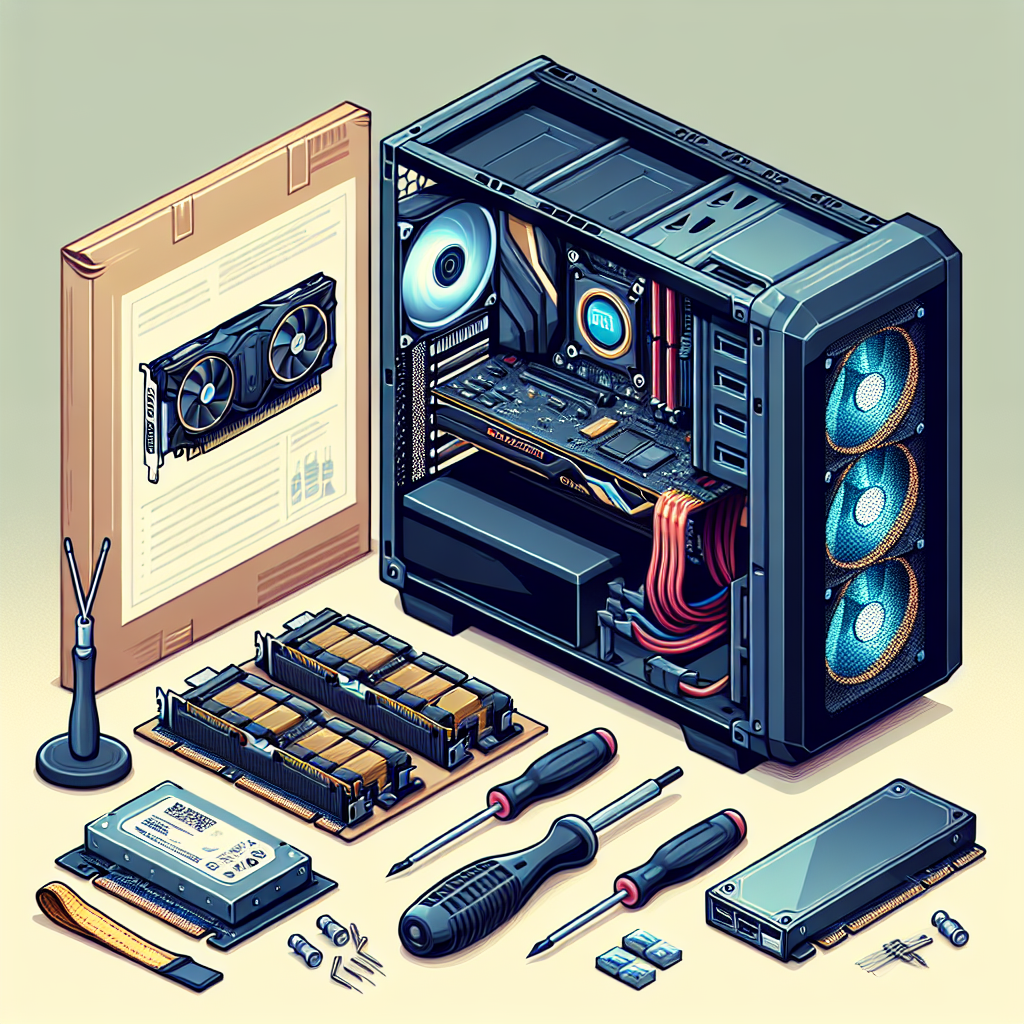Your cart is currently empty!
Upgrading Your Gaming PC: When and How to Do It

If you are an avid gamer, you know that having a powerful gaming PC is essential for enjoying the latest and greatest games. However, with technology constantly evolving, it can be challenging to keep up with the latest hardware and software upgrades. So, when is the right time to upgrade your gaming PC, and how should you go about doing it?
When to Upgrade:
There are a few key signs that indicate it may be time to upgrade your gaming PC. If you start noticing that your games are running slower than usual, experiencing frequent crashes or freezes, or if you are unable to run the newest games at their optimal settings, it may be time for an upgrade. Additionally, if you are looking to take advantage of the latest technology, such as ray tracing or VR gaming, you may need to upgrade your PC to support these features.
How to Upgrade:
When it comes to upgrading your gaming PC, there are a few key components to consider:
1. Graphics Card: The graphics card is one of the most important components for gaming performance. If you are experiencing lag or low frame rates, upgrading to a newer, more powerful graphics card can make a significant difference. Look for a card that is compatible with your motherboard and power supply, and consider factors such as VRAM, clock speed, and cooling options.
2. CPU: The CPU is another crucial component for gaming performance. If you are experiencing slow load times or poor multitasking performance, upgrading to a faster CPU can help. Make sure to choose a CPU that is compatible with your motherboard and socket type, and consider factors such as core count, clock speed, and cache size.
3. RAM: If you are experiencing frequent crashes or freezes, upgrading your RAM can help improve system stability and performance. Consider upgrading to faster, higher-capacity RAM modules to improve gaming performance.
4. Storage: Upgrading your storage can also help improve gaming performance, especially if you are experiencing slow load times. Consider upgrading to a solid-state drive (SSD) for faster read and write speeds, or adding additional storage for more game files and programs.
5. Cooling: Upgrading your cooling system can help improve system performance and prevent overheating. Consider adding additional case fans, upgrading to a liquid cooling system, or replacing your CPU cooler for better thermal management.
In conclusion, upgrading your gaming PC can help improve performance, stability, and compatibility with the latest games and technology. By keeping an eye on key performance indicators and considering upgrades to components such as the graphics card, CPU, RAM, storage, and cooling system, you can ensure that your gaming PC stays up to date and ready to handle the latest games and software.

Leave a Reply